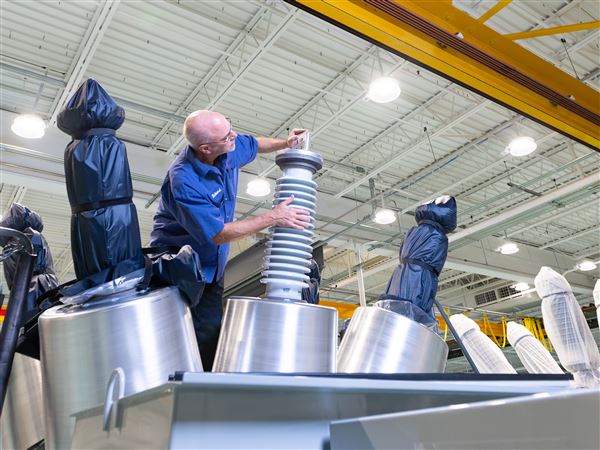Business and organized labor leaders formed Pittsburgh Works Together because we believe the best path to sustainable prosperity for all segments of the population is an economy that embraces traditional industries, such as manufacturing, alongside emerging technology companies.
The opportunity presented by mobile autonomy — vehicles and robots and other equipment that move and think for themselves — proves the wisdom of that approach. We can build a new, multibillion-dollar industry that can pay off with jobs and investment across the region and not just in R&D labs and university buildings in Pittsburgh.
A new report, “Forefront: Securing Pittsburgh’s Break-out Position in Autonomous Mobile Systems,” says the region has a good head start, but other places are trying to wrest away the advantage we built through decades of research at Carnegie Mellon University and elsewhere.
Leaders of the Greater Pittsburgh Chamber of Commerce and the Regional Industrial Development Corp. commissioned the autonomy strategy study with funding from the R.K. Mellon Foundation.
They all deserve credit for understanding that this must be an economic future shared by everyone, not just a select few.
“As we go from an R&D-driven industry to one that’s more production oriented, we need those technicians and the manufacturing and assembly folks. And the good news there is it provides opportunities for folks all around our region, not just in Oakland, Lawrenceville and Hazelwood, but really throughout all southwestern Pennsylvania on the manufacturing and supply-chain side,” Don Smith Jr., president of RIDC, said in a television interview.
As we pursue this, we need to make sure that rebuilding the state’s manufacturing base is at the center of our efforts. Mr. Smith cited the states of Ohio, Michigan, Florida, Texas and Arizona as investing heavily to build their autonomy sectors.
And if we’re in a race with those states to capture U.S. manufacturing, we are losing. And losing badly.
In the five years prior to the pandemic, each of those states added at least 9,400 manufacturing jobs, for a total of 131,500.
During the same time, Pennsylvania lost 300 manufacturing jobs and the family-sustaining wages they deliver. The commonwealth we love cannot survive if that trend continues.
The Get to Work & Build It Here policy agenda from Pittsburgh Works has ideas for jump-starting the state’s manufacturing sector, including cutting the country’s second-highest corporate income tax, streamlining permitting and building more ready-to-go sites for factories.
Similarly, Forefront has a set of recommendations for taking advantage of mobile autonomy, an industry we practically invented. At the same time, we need to pursue other opportunities that may be a little more rugged and a little less glamorous.
Just days after the release of the autonomy report, Nucor Corp. and U.S. Steel both announced that they were looking for sites to build steel mills, with a combined investment of $6 billion.
Nucor said it is looking at sites in Pennsylvania, Ohio and West Virginia. U.S. Steel said it is looking in Arkansas and Alabama, where it already operates electric arc furnaces but was willing to consider other sites as well.
U.S. Steel said the ultimate decision would depend on multiple factors, including “state and local support.” Both projects are designed to make higher quality steel with a smaller carbon footprint.
In other words, using innovation and state-of-the-art technology to improve the workings of the physical world. Just like the autonomy industry.
These are the kinds of opportunities the Pittsburgh region was built upon. Are we ready to seize them for our future?
Kenneth J. Broadbent is business manager of Steamfitters Local Union #449 and a member of the board of Pittsburgh Works Together.
First Published: October 23, 2021, 4:00 a.m.















